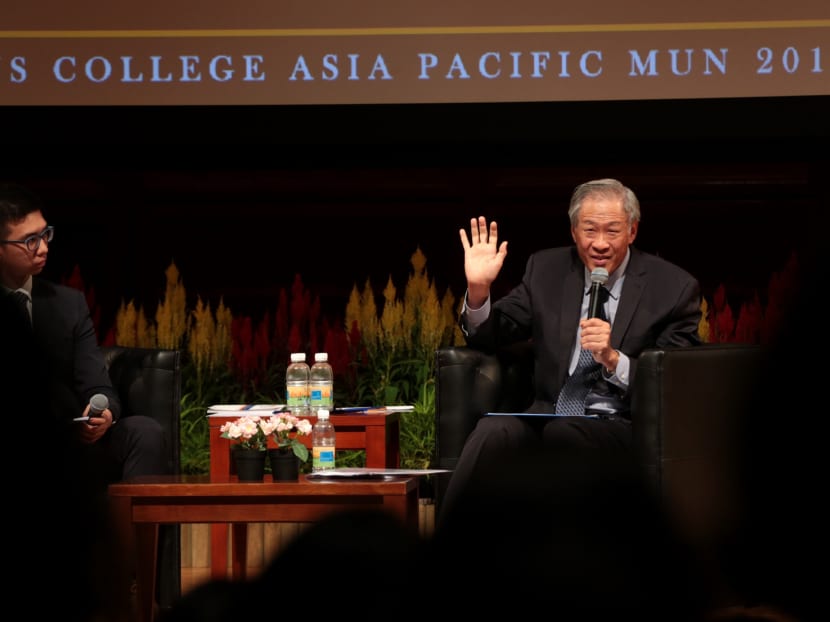Don’t measure progress by number of political parties, says Defence Minister
SINGAPORE — The extent of progress in a country should not be measured by its number of political parties, said Defence Minister Ng Eng Hen on Friday (Jan 13) at a dialogue with Yale-NUS students, in response to a question on whether having one or multiple parties is better for governing a country.

Minister Ng Eng Hen speaks at the Opening Ceremony of the Yale-NUS College Asia Pacific Model United Nations Conference 2017, on Jan 13, 2017. Photo: Jason Quah/TODAY
SINGAPORE — The extent of progress in a country should not be measured by its number of political parties, said Defence Minister Ng Eng Hen on Friday (Jan 13) at a dialogue with Yale-NUS students, in response to a question on whether having one or multiple parties is better for governing a country.
“If the country’s progress is measured by the number of political parties in it, I think you will have an interesting result. That’s not been shown to be the determinant to how a country progresses,” said Dr Ng, who spoke after delivering his keynote address at the Yale-NUS College Asia Pacific Model United Nations Conference.
Turning to China as an example, he noted that despite being led by a state party, no one has questioned the economic progress the country has made in the last few decades.
On the other hand, countries with multiple parties can draw on the good ideas from each party, but they could also face political gridlock, such as in the case of Australia and the United Kingdom, noted Dr Ng.
“I asked the question, why there was this trend globally, as we’ve seen in the last decade, towards even more authoritarian leaders and systems?”
“It is the fact that that model hasn’t delivered as well. And the reason is political gridlock, there is a price to pay for accommodation, in other words you have a coalition party,” he added.
A wide range of questions was posed to Dr Ng during the 45-minute dialogue, ranging from his views on the Israeli settlements on Palestinian-occupied lands, to what the Government’s plans were for women to play a larger role in defending the country.
In response to the last question, Dr Ng noted that the number of countries with such military conscription have dwindled, and Singapore is one of the few countries that are able to continue with it.
“The reason why it’s been very difficult for other countries (to do so)… is that you can only maintain the commitment to national service if you are fair to everybody,” he said.
As such, it would be hard for Singapore to do what others have suggested: Enlist men for the army and bring women in to make them nurses or teachers.
“I find it very hard to tell people or (for) any government to say to its population, I want you to subsume your individual needs for a need other than military defence,” he said.






